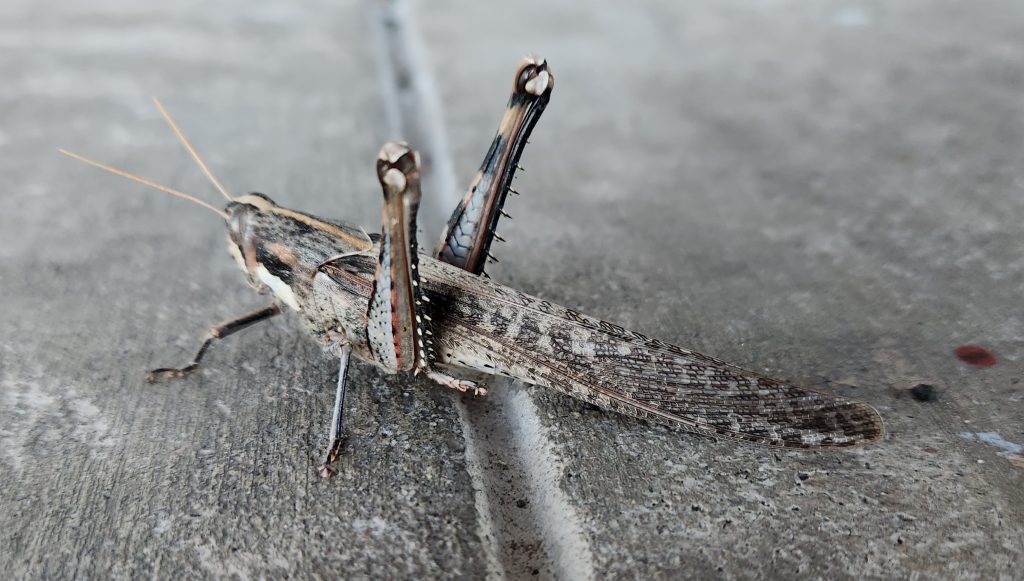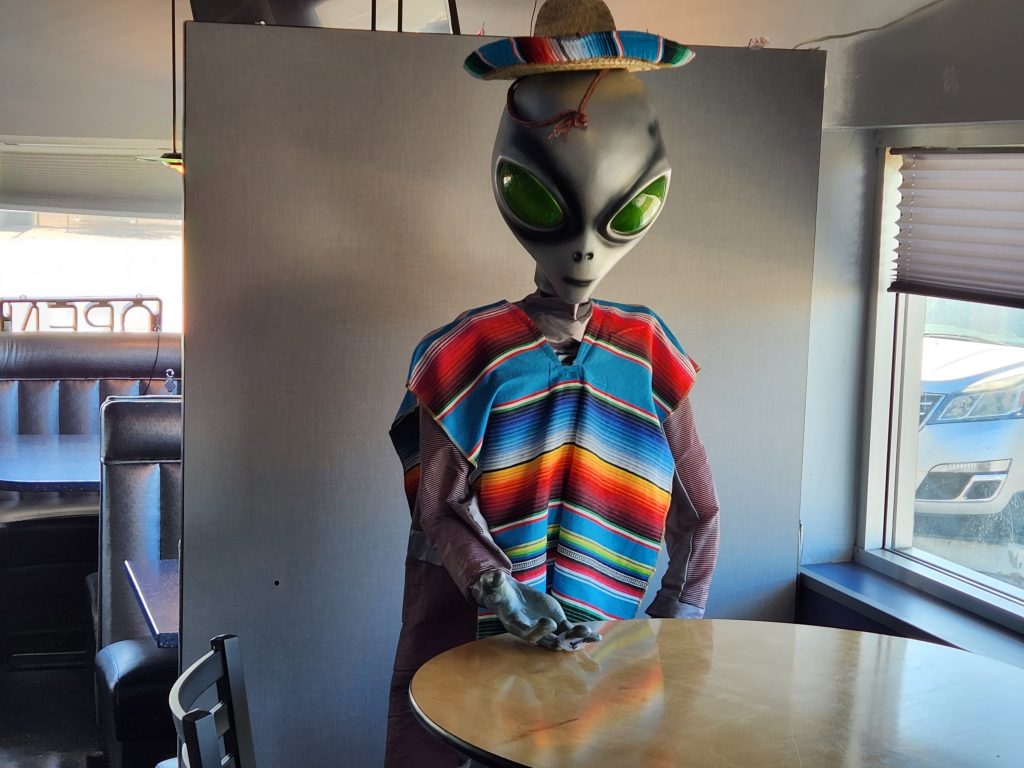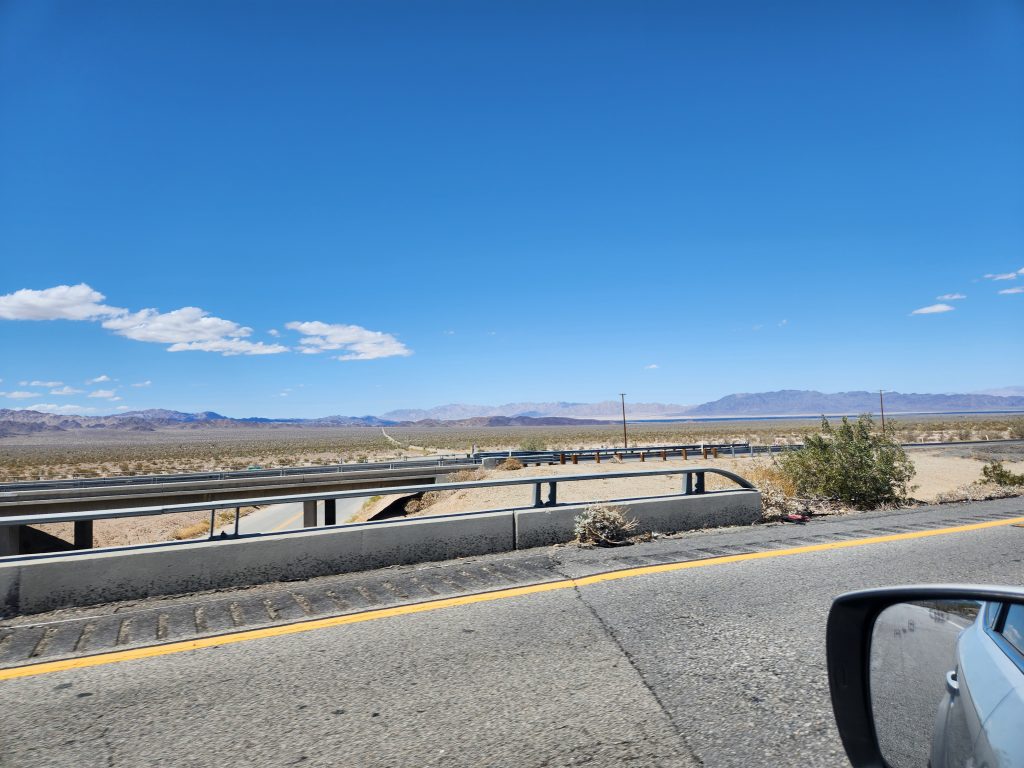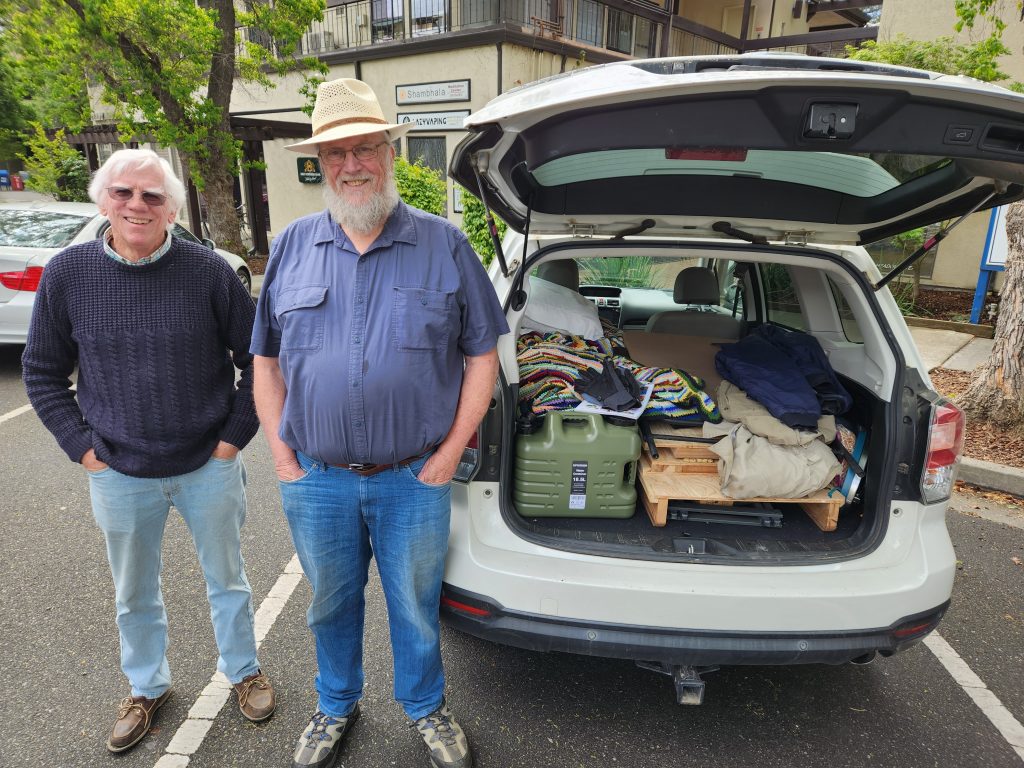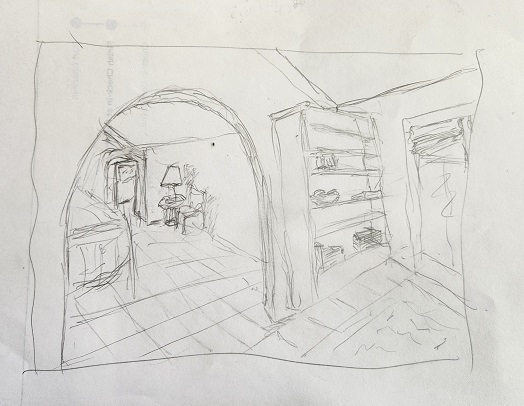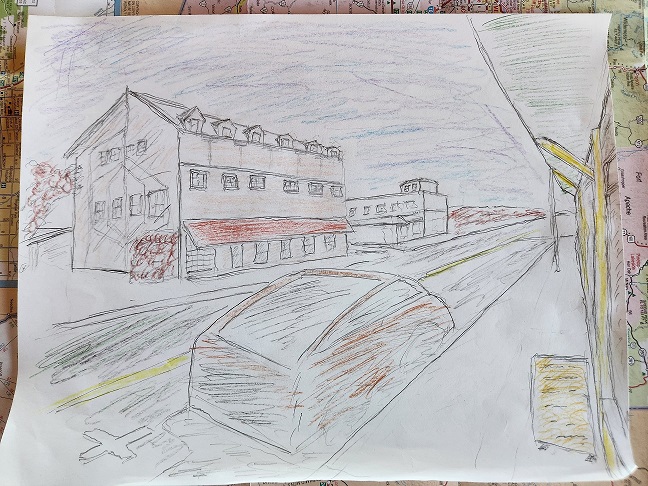Part of my journey includes an extremely generous offer to visit the mirror lab at the University of Arizona. This is the place where many of the largest, and most complex, telescope mirrors are designed and built. For a technology nerd such as myself this is an amazing, not to be missed, offer. However, when planning for my trip it was not certain exactly when this tour could take place, so instead of worrying too much about it I just booked a hotel room for a few days that bracketed the likely available times. I arrived in Tucson last Sunday, the tour is today (Wednesday) and I’ll continue my journey toward the east tomorrow morning. This has opened up a nice time to rest after days of driving, being a pleasant opportunity to relax and take time to “smell the roses.”
My hotel selection is a bit different than I envisioned. Rather than a high rise, environmental enclosed retreat from the “world out there”, this hotel is what I would call a motel – built in 1972 to service the automobile travelers by providing three long lines of side-by-side rooms with parking right in front of your door. When I leave my room it is to the outdoors, not a hall in a big building. Going to get my breakfast (a bowl of mush with options for things like raisins, banana chips, various types of seeds, etc) I walk through the parking lot. While Hotel McCoy has small rooms, funky decor, and limited services it also has the feeling of remaining connected to nature (even though it is located almost under a large network of elevated freeways that disconnected the motel from “normal” traffic flows). Given the choice, I choose staying connected to the environment – and actually use the pool because it is a comfortable and accessible feature open to the sky with interesting guests hanging around and talking. If you have been following along you realize that I was a bit skeptical about this hotel when I arrived, but have grown rather fond of it. I get all that I need without a lot of the “plastic” feeling of a normal hotel. It is comfortable and friendly, hard to ask for much more.
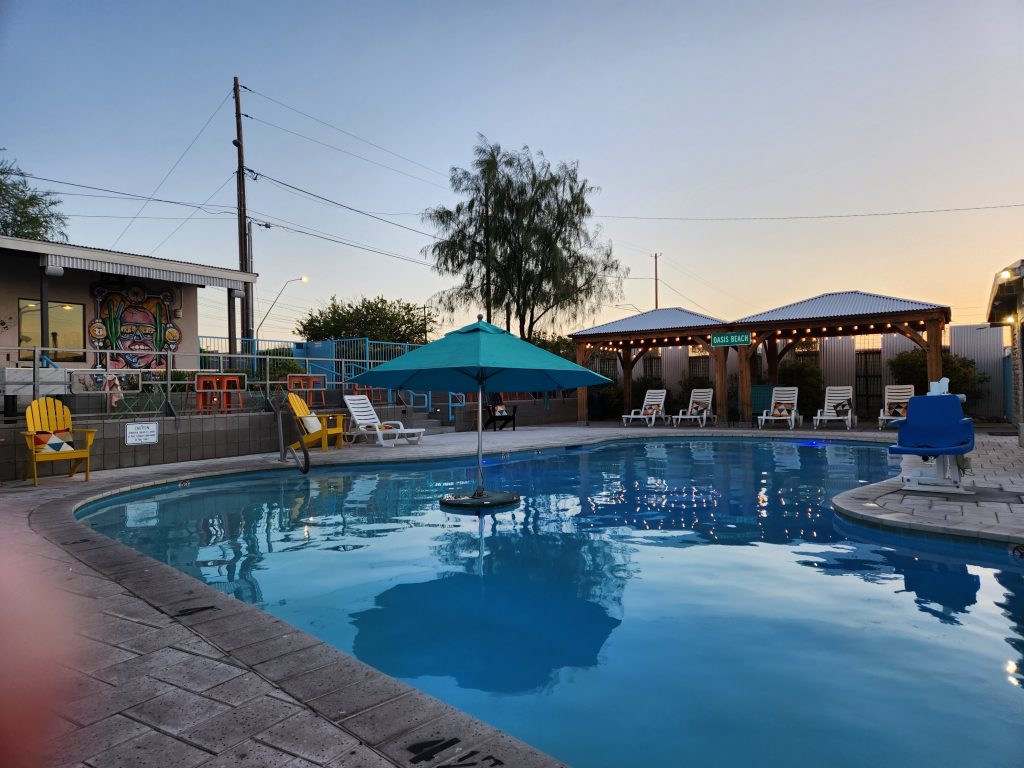
I haven’t felt like doing much in Tucson. I went out to take a tour of the old Titan Missile silo and defunct missile. I have been around these sorts of hardware enough to find it pretty “ho hum” – yep, a big missile in an underground building painted all green inside (to keep the crew calm). Not dissimilar to a ship or submarine. Just a big steel place with the plumbing exposed and low headroom walkways. I see the need for that in submarines but why limit the headroom for a building that extends hundreds of feet into the ground? It was probably designed using the same, or similar, military specs as for a ship and that resulted in cramped, low walkways and rooms. My main takeaway was the normal one of awe that we build things like that, and what sort of global insanity results in their creation? Clearly humanity is tittering on the edge of insanity.
Another trip was a tour to the local desert national park. It was beautiful, but once again I think they (that great unknown version of they) put in too many plants! It is jammed full of plants of various types so you can hardly see the ground in most places. What kind of desert is that?? It certainly isn’t the barren desert that I am used to in the Mojave, or that is depicted in the movies.
I managed to have a couple of interesting discussions with folks while here. One was with a kid (65 years old) that is on a retirement adventure much like me. His mother recently died so he became freed up enough to journey. He was a high-tech salesman, starting out with Wang computers, moving on to AT&T internet and other places. He mentioned the vast amount of money that could be made in the good old days, told me that his friends had made – and spent – fortunes, and that his ex-wife now has his fortune. He told me about the grand canyon, how it was totally impossible for it to take 2-3 million years to cut the canyons because Mt St Helens created a 1,000 foot canyon in just a few days after May 18, 1980. I tried to question him about the existence of such a canyon, and how that could have happened. He insisted that it exists and that it was cut with water coming from above. He is convinced that the grand canyon was cut in a few years not so long ago.
Another discussion I had concerned the future of electric cars. I mentioned that it is my opinion that battery powered cars are a fleeting technology soon to be replaced with hydrogen fuel cells. That got us into a rather confused conversation because I had assumed that because he was a technically trained person, one that is very interested in vehicles of all types, he would understand when I said that I expect future electric cars to be powered by hydrogen fuel cells. I finally figured out that he knew nothing of this, he didn’t know about hydrogen fuel cells, didn’t know that they are mature and ready to be put on the market, and that they offer vast safety and environmental advantages over the current love affair with lithium batteries. I don’t want to go into all of the details about this technology here (perhaps in a separate blog if I get the time and enthusiasm to do so – or if anyone expresses interest in knowing more on the subject). He assumed hydrogen cars would use internal combustion engines, and assumed that hydrogen was far too dangerous to use as evidenced by the Hindenburg disaster in 1937. Even though he is a knowledgeable fellow in engineering related fields he didn’t know that the Hindenburg fire/explosion was NOT primarily a hydrogen event (it was created by the coatings on the gas bags), and that hydrogen is vastly safer than gasoline as a fuel – but he is perfectly happy to drive gasoline powered cars.
The main point that I came away from these discussions is that we are being duped by the news media (for example, telling us that the Hindenburg proved that hydrogen is too dangerous to use and convincing the public that batteries are the way to go when they are a terrible solution promoted by a megalomaniac billionaire). Not only that, but the public is not only almost totally ignorant about anything beyond their immediate sight and touch, but they are either too lazy, or don’t know how, to look things up to sort truth from fiction. They get snippets of information (such as there were great lahars caused by the rapid melting of snow on the mountain that quickly eroded huge amounts of the mountain, and then extrapolate that to other things such as the grand canyon. That satisfies their need for “understanding” and they then settle back and make decisions based upon their totally faulty reasoning.
These inter-connected problems (false information from the media), and an inability to sort fact from fiction are causing much of the discord we are currently experiencing in the USA (and the world). The media problem could be solved by the public demanding truth instead of fiction. We used to get something a bit closer to the truth, but now all controls seem to be been lifted and are free to promote anything they want without ever having to account for their wild flights of fantasy. The second problem, being able to sort truth from fiction, seems to be a massive failure of our education system. My experience in the education of educators when I obtained my teaching credential is that teachers are ill prepared to understand how to do this themselves. There is almost no place in our educational system targeted on the problem of finding valid information among the mountains of lives, falsehoods, wives tales, and religious beliefs. Students are taught that if they read it, or hear it from an “expert” that it is true… no questions asked. And of course we all tend to gravitate toward sources that align with our existing beliefs – therefore keeping us inside of our sphere of knowledge. It takes practice and training to learn to get beyond those limits.
